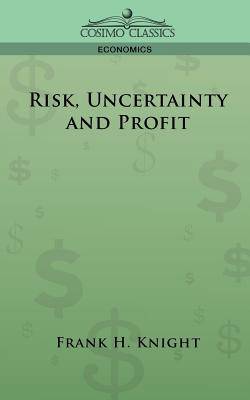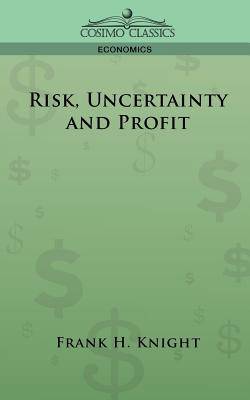
Bedankt voor het vertrouwen het afgelopen jaar! Om jou te bedanken bieden we GRATIS verzending (in België) aan op alles gedurende de hele maand januari.
- Afhalen na 1 uur in een winkel met voorraad
- Gratis thuislevering in België vanaf € 30
- Ruim aanbod met 7 miljoen producten
Bedankt voor het vertrouwen het afgelopen jaar! Om jou te bedanken bieden we GRATIS verzending (in België) aan op alles gedurende de hele maand januari.
- Afhalen na 1 uur in een winkel met voorraad
- Gratis thuislevering in België vanaf € 30
- Ruim aanbod met 7 miljoen producten
Zoeken
Omschrijving
We live in a world full of contradiction and paradox, a fact of which perhaps the most fundamental illustration is this: that the existence of a problem of knowledge depends on the future being different than the past, while the possibility of the solution of the problem depends on the future being like the past. -from Chapter XI: Uncertainty and Social Progress A timeless classic of economic theory that remains fascinating and pertinent today, this is Frank Knight's famous explanation of why perfect competition cannot eliminate profits, the important differences between "risk" and "uncertainty," and the vital role of the entrepreneur in profitmaking. Based on Knight's PhD dissertation, this 1921 work, balancing theory with fact to come to stunning insights, is a distinct pleasure to read. FRANK H. KNIGHT (1885-1972) is considered by some the greatest American scholar of economics of the 20th century. An economics professor at the University of Chicago from 1927 until 1955, he was one of the founders of the Chicago school of economics, which influenced Milton Friedman and George Stigler.
Specificaties
Betrokkenen
- Auteur(s):
- Uitgeverij:
Inhoud
- Aantal bladzijden:
- 400
- Taal:
- Engels
Eigenschappen
- Productcode (EAN):
- 9781596052420
- Verschijningsdatum:
- 1/09/2005
- Uitvoering:
- Paperback
- Formaat:
- Trade paperback (VS)
- Afmetingen:
- 131 mm x 204 mm
- Gewicht:
- 449 g

Alleen bij Standaard Boekhandel
+ 62 punten op je klantenkaart van Standaard Boekhandel
Beoordelingen
We publiceren alleen reviews die voldoen aan de voorwaarden voor reviews. Bekijk onze voorwaarden voor reviews.









